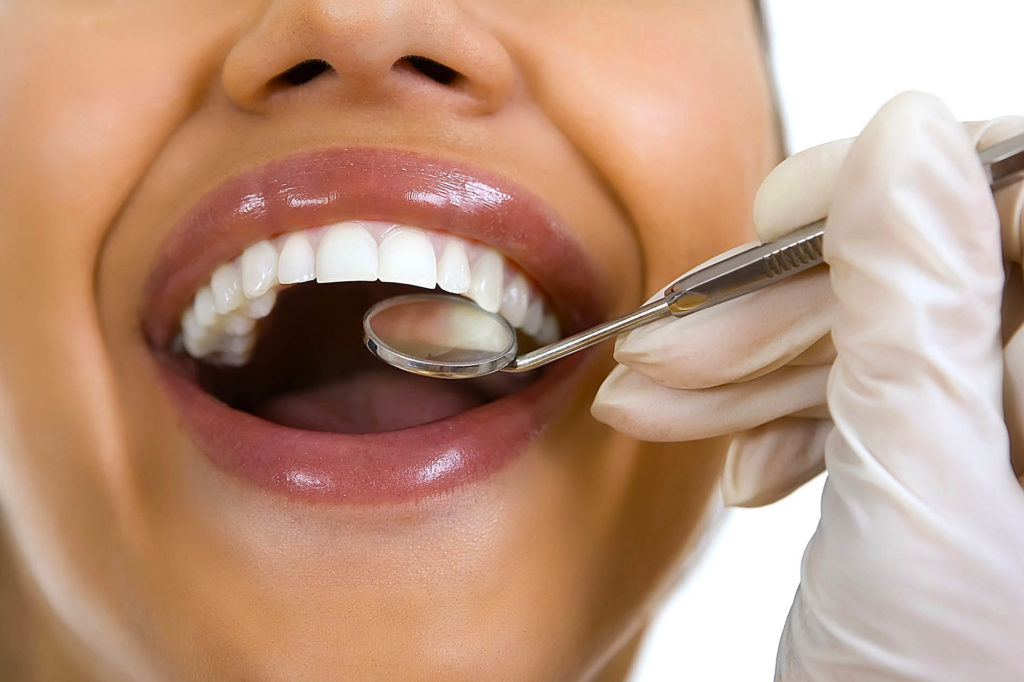Gum disease affects nearly half of the population in the United States alone. 47 percent of American adults aged 30 and older have gum disease in one form or another. Gum disease, also known as Periodontal disease, is the deconstruction of your gums. If gum disease is left untreated for too long you can suffer from tooth loss. Periodontal disease is where your gums and bone pull away from your teeth. When this happens your gums form pockets and debris, food, and bacteria get stuck inside of it. If this sits there too long, the bacteria can spread and cause an infection. Here are a few different ways to tell if you have gum disease and when you should take action.

1. Red, swollen or tender gums
When your gums are naturally red and swollen, that’s a big sign telling you to visit your dentist. It’s not 100 percent telling you have the disease but it’s a big enough reason to ask your dentist for confirmation.
2. Bleeding while brushing, flossing or eating
Be sure to pay attention when you eat, if you taste or see blood regularly, then you should contact your dentist right away. Sometimes it’s normal for your gums to bleed when you floss if you do it irregularly, but you should take note if you do floss regularly and you still bleed then you will need to talk to your dentist. When you brush your teeth and they bleed, that’s another point to bring up to your dentist.
3. Loose or separating teeth
When your teeth are starting to wiggle or separate you need to let your dentist know as soon as possible. This is a big tell-tale sign that you have gum disease.
4. Puss between your gums and teeth
If you notice you have pus anywhere in your mouth that’s a bad sign. Talk to your dentist if this is an issue for you and take extra care and talk to your dentist immediately if you have puss around your gums and teeth.
5. Sores in your mouth
Everyone gets sores in their mouth at one point or another, it’s not a big deal. It’s an issue when this sign is paired with any and all of those above.
6. Persistent bad breath
Not only is bad breath a sign of bad oral hygiene, but it could also be a sign of gum disease. If brushing your teeth, flossing and mouthwash doesn’t help your morning breath get under control, you need to talk to your dentist. It could be something simple like changing your toothpaste, or you could have a more serious problem on your hands.
7. Change in the way your teeth fit when you bite
When you bite down on anything your teeth normally fit in a specific way. You notice when your teeth are different. If there’s a tooth that’s higher up than normal or you have discomfort in chewing your bite may have changed. It can be a small change or it can be on a larger scale. Either way, it will be safe to ask your dentist about this change and see what it means.
If you ever have any questions about your mouth and or have any issues you need to talk with your dentist and get everything figured out before it’s too late.



